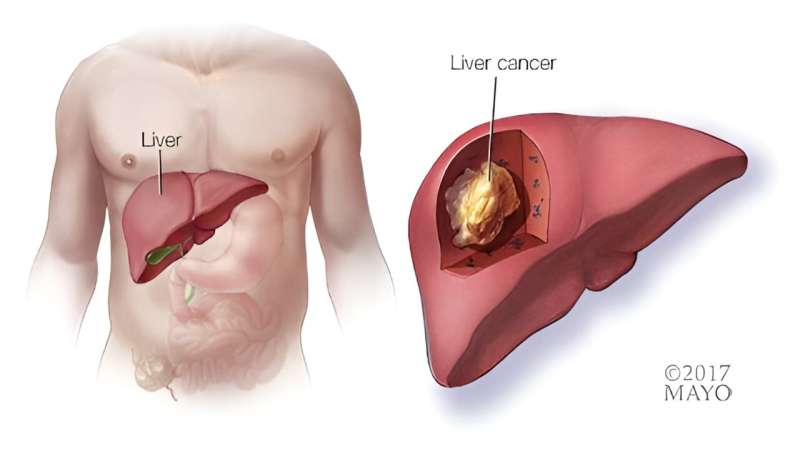This article has been reviewed according to Science X's editorial process and policies. Editors have highlighted the following attributes while ensuring the content's credibility:
fact-checked
trusted source
proofread
Video: Treating liver cancer

Liver cancer rates have more than tripled in the U.S. since 1980 and continue to rise. More than 41,000 people will be diagnosed with liver cancer in the U.S. this year, and about 29,000 will die from the disease, according to the American Cancer Society.
Dr. Lionel Kankeu Fonkoua, a Mayo Clinic Comprehensive Cancer Center oncologist, discusses prevention and treatment.
The most common form of primary liver cancer—cancer that starts in the liver—is called hepatocellular carcinoma. This type of cancer often develops in people with chronic liver diseases, such as hepatitis.
"It's due to a chronic inflammation that leads to liver damage, cirrhosis and eventually to cancer," says Dr. Kankeu Fonkoua.
Most people don't have symptoms in the early stages of primary liver cancer. But when symptoms do appear, they may include:
- Yellowing of the eyes and skin.
- Unexpected weight loss.
- Upper abdominal pain.
- White, chalky stools.
Liver cancer treatments
Several promising treatments to manage the disease include targeted therapy and immunotherapy.
"Immunotherapy is kind of a novel type of cancer treatment that is designed to boost your immune system to attack the cancer," explains Dr. Kankeu Fonkoua.
Eating a balanced diet of fruits and vegetables, limiting alcohol consumption, and getting vaccinated against hepatitis B can reduce your risk of liver cancer.
"The hope is that we can trigger a tumor specific immune response for every patient," says Dr. Kankeu Fonkoua.





















